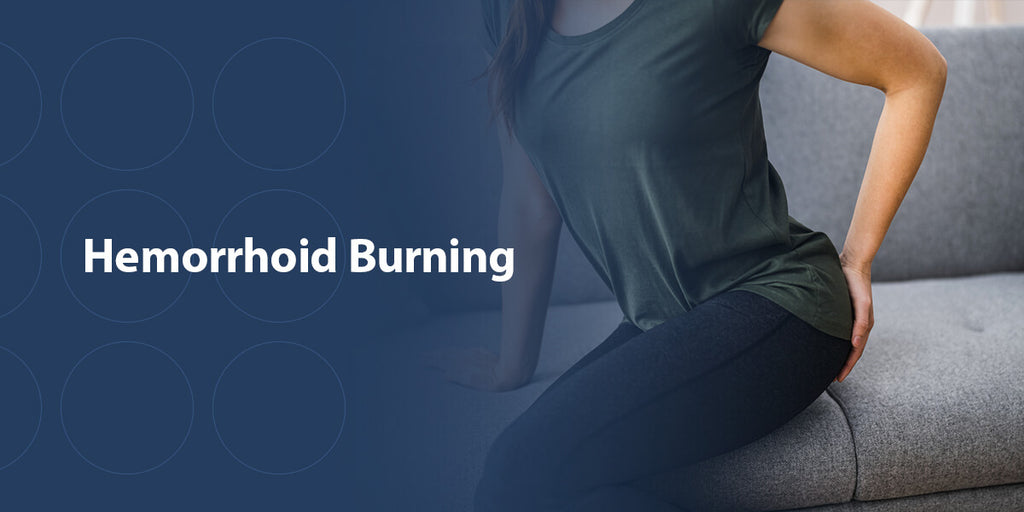The Itchy Truth About Hemorrhoids
Hemorrhoids, also known as piles, are swollen veins around the rectum and anus. They can be a source of discomfort, and many people wonder: can piles itch? The answer is yes! Itching is a common symptom of hemorrhoids, along with bleeding, pain, and difficulty passing stool. This blog post explores why piles itch, how to manage the itch, and offers tips for preventing hemorrhoids altogether.
Hemorrhoids and the Uncomfortable Itch
Hemorrhoids, those swollen veins in your rectum and anus, are a common yet uncomfortable reality for many people. They can cause a range of unpleasant symptoms, including pain, bleeding, and difficulty passing stool. But one particularly bothersome symptom is the itch – a constant reminder of the presence of these unwelcome visitors.
While not everyone with hemorrhoids experiences itching, it's a frequent complaint. This blog post dives deeper into the connection between hemorrhoids and itching, exploring the reasons behind this irritating symptom and offering solutions for managing it and preventing future flare-ups.
The Itch Factor: Why Do Piles Itch?
Several factors contribute to the itch associated with hemorrhoids:
- Irritation: Swollen hemorrhoids can irritate the delicate skin around the anus, leading to itching.
- Mucus Production: Internal hemorrhoids can cause increased mucus production in the rectum. This mucus can leak out and irritate the anal area, triggering itching.
- Inflammation: Hemorrhoids are often inflamed, and this inflammation can further irritate the surrounding skin, leading to itching.
- Poor Hygiene: If the anal area isn't kept clean, especially after bowel movements, stool or mucus residue can build up and irritate the skin, causing itching.
- Straining: Straining during bowel movements can worsen hemorrhoids and exacerbate itching.
Finding Relief: How to Manage the Itch
Fortunately, there are several ways to manage the itch associated with hemorrhoids:
- Sitz Baths: Warm sitz baths, where you soak your lower body in warm water for 10-15 minutes several times a day, can soothe the irritated skin and provide relief from itching.
- Topical Creams and Ointments: Over-the-counter creams and ointments containing ingredients like witch hazel, lidocaine, or hydrocortisone can help reduce inflammation and itching.
- Hygiene: Maintaining proper hygiene is crucial. Gently clean the anal area with warm water and a mild soap after each bowel movement. Avoid using harsh soaps or wipes, as these can further irritate the skin.
- Fiber-Rich Diet: A diet rich in fiber helps soften stools and reduces straining during bowel movements. This can prevent hemorrhoids from worsening and alleviate itching.
- Loose-Fitting Cotton Clothing: Wear loose-fitting cotton underwear to allow for proper ventilation and prevent further irritation.
Preventing the Itch: Keeping Hemorrhoids at Bay
The good news is that there are ways to prevent hemorrhoids altogether, which in turn helps prevent the associated itching:
- High-Fiber Diet: As mentioned earlier, a fiber-rich diet promotes softer stools and reduces straining. This puts less pressure on the veins around the rectum, lowering the risk of hemorrhoids.
- Hydration: Drinking plenty of water throughout the day helps keep stools soft and prevents constipation, another factor contributing to hemorrhoids.
- Regular Exercise: Aim for at least 30 minutes of moderate-intensity exercise most days of the week. Exercise helps maintain bowel regularity and reduces pressure on the veins in the rectum.
- Healthy Weight Management: Excess weight can increase pressure on the veins in the rectum, increasing the risk of hemorrhoids.
- Avoiding Straining: Don't strain during bowel movements. Take your time, and elevate your legs slightly with a footstool for smoother elimination.
When to Seek Medical Help
While some home remedies can effectively manage hemorrhoid itching, there are situations where seeking medical advice is essential:
- Severe Itching: If the itching is severe and doesn't improve with home remedies, consult a doctor.
- Persistent Symptoms: If you experience hemorrhoid symptoms, including itching, for more than two weeks, it's crucial to see a doctor for diagnosis and treatment.
- Bleeding: Blood in your stool or on toilet paper can be a sign of hemorrhoids or other conditions.
Itching No More!
In conclusion hemorrhoid itching, while unpleasant, can be managed with proper care and lifestyle changes. By implementing the tips mentioned above, you can find relief from the itch and improve your overall comfort. Remember, don't hesitate to seek professional medical help if your symptoms are severe

